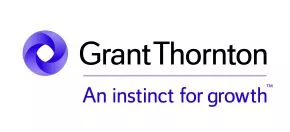The voluntary disclosure program (VDP) was put in place to promote compliance with Canada's tax laws by encouraging taxpayers to voluntarily come forward and correct inaccurate or incomplete information, or to disclose information not previously reported. Currently, taxpayers can apply to the CRA to ask for relief from prosecution and penalties.
The VDP applies to disclosures relating to income tax, excise tax, excise duties, source deductions and GST/HST, as well as charges under the Air Travellers Security Charge Act and Softwood Lumber Products Export Charge Act, 2006.
Income tax
The CRA recently released Draft Information Circular – IC00-1R6 – Voluntary Disclosures Program, which proposes changes to the current VDP (as outlined in IC00-1R5) that considerably limit the ability of taxpayers to access the disclosure program. Under the new proposals, the VDP will have two tracks for income tax disclosures:
1. First track or General Program: for disclosure of accidental minor non-compliance.
2. Second track or Limited Program: for disclosure of major non-compliance. The determination of whether an application is processed under this Limited Program will be made on a case by case basis.
Further details regarding these two tracks are provided below.
To qualify for relief under either program, the existing requirements that the disclosure be voluntary, complete, involve the application of a penalty and include information that is at least one year past due will continue to apply. Generally, a taxpayer is entitled to use the VDP only one time.
Where the books and records no longer exist, the proposals now require the taxpayer to make reasonable efforts to estimate the unreported income as part of the disclosure.
The CRA is also proposing to expand the conditions to qualify for the program—taxpayers will be required to include payment of the estimated tax owing with their VDP application. If the taxpayer is unable to pay the estimated tax owing, a payment arrangement may be considered in extraordinary circumstances; however, the taxpayer will be required to provide adequate security and evidence supporting the inability to make the payment.
General Program
The General Program will be applicable for accidental minor non-compliance. The requirements and relief are similar to the current VDP, with some minor changes, including partial relief of interest charges Relief from penalty charges and criminal prosecution will continue to apply.
Limited Program
The proposals introduce a new track, the Limited Program. The Limited Program will be applicable for applications "that disclose major non-compliance," which includes one or more of the following situations:
- active efforts to avoid detection through the use of offshore vehicles or other means
- large dollar amounts
- multiple years of non-compliance
- a sophisticated taxpayer
- the disclosure is made after an official statement by the CRA regarding its intended focus of compliance or following CRA correspondence or campaigns
- any other circumstance in which a high degree of taxpayer culpability contributed to the failure to comply
Under the Limited Program, the taxpayer will receive reduced relief, that is, the taxpayer will not be subject to criminal prosecution or charged a gross negligence penalty. However, the taxpayer will be charged other penalties as well as interest, as applicable.
Circumstances where relief will not be considered
In addition to the existing circumstances which are not eligible for VDP relief (i.e., applications that relate to returns with no taxes owing or with refunds expected, elections, advance pricing arrangements, a person is in receivership or has become bankrupt and post-assessment requests), the proposals also introduce some additional circumstances in which VDP relief will not be accepted.
The most significant circumstance where VDP relief will not be considered is for corporations with gross revenue over $250 million in at least two of their last five taxation years. Such corporations will no longer be protected from penalties or eligible for interest relief.
VDP applications relating to transfer pricing adjustments or to applications that depend on an agreement made at the discretion of the Canadian competent authority under a tax treaty provision will also no longer be eligible for VDP relief. In addition, the CRA will not accept VDP applications that relate to the reporting of income from the proceeds of crime. Furthermore, the CRA is proposing a change to allow it to cancel VDP relief if it is subsequently discovered that a taxpayer's VDP application includes a misrepresentation due to neglect, carelessness, wilful default or fraud.
Required disclosures
When applying for a VDP, the taxpayer must disclose certain information (i.e., refer to Form RC199, Voluntary Disclosure Program (VDP)). Under the proposals, the taxpayer will also be required to disclose the name of any advisor who provided assistance with respect to the subject matter of the VDP application. Taxpayers and/or their authorized representatives are expected to make all documents, records and books of account, as well as any other required information, available upon request.
Summary
In an effort to ensure the VDP is fair and not considered to reward non-compliance, these proposals
now limit the eligibility for the VDP by imposing additional conditions on applicants. However, these changes may instead lead to less disclosures or a reduction of compliance with the Canadian tax laws and the CRA may find themselves having to increase their audit activity to identify non-compliance.
The CRA is accepting public comments on these proposed changes as outlined in the Draft Information Circular and GST/HST Memorandum until August 8, 2017. The CRA plans to announce formal changes to the VDP in the fall of 2017, and it will be in effect starting in 2018.
Please contact your Grant Thornton advisor if you would like to further discuss these proposals and how they may affect you and your business. We can help you prepare for these changes.
The content of this article is intended to provide a general guide to the subject matter. Specialist advice should be sought about your specific circumstances.


